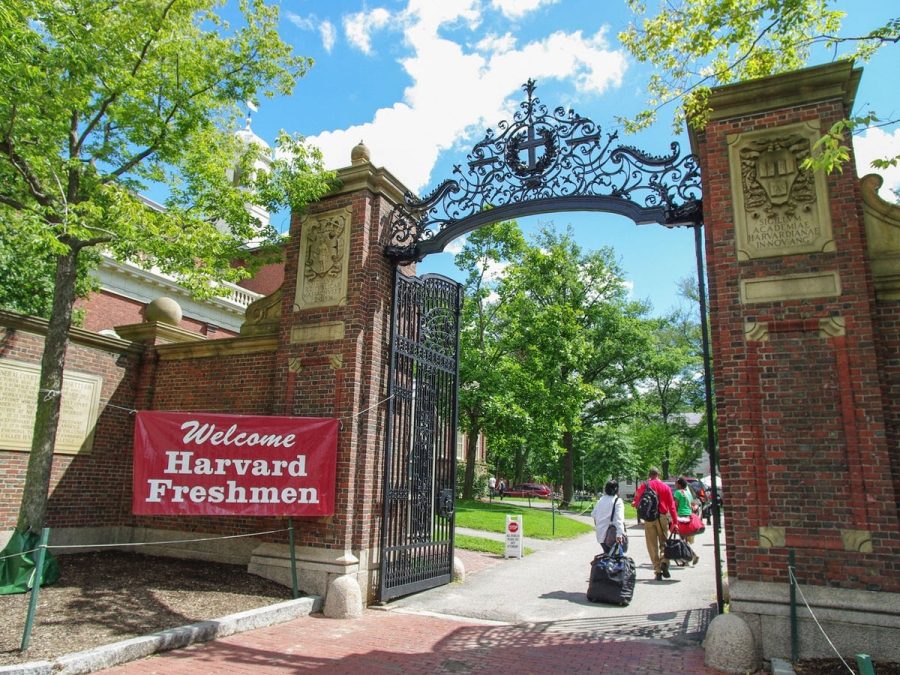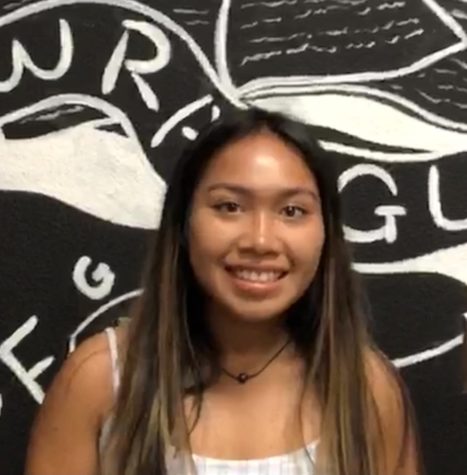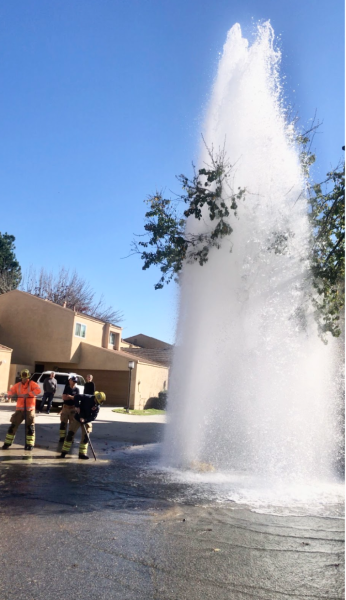Why are Acceptance Rates at Elite Universities Declining?
Harvard University, like many top universities, had a much lower acceptance rate in 2021 because of the surge in applications this year.
April 11, 2021
After three years of hard work, the class of 2021 started the college application process in the midst of the COVID-19 pandemic. For the past few months, the class of 2021 has been receiving their college decisions from a variety of universities around the world. While scrolling on social media, you see a plethora of bright students get rejected from top universities, and although colleges steadily decline over time, is there a dramatic drop in college acceptance rates this year?
This year, at elite institutions, such as the Ivy Leagues, Stanford, University of Chicago, MIT, etc., the college acceptance process was much more competitive for students. For instance, the restrictive early admission acceptance rate at Yale and Harvard was around 14% in 2019 while this year it was 7.4% at Harvard and 10% at Yale (mycentealjersey.com). Also, at the University of Pennsylvania, the acceptance rate dropped from 20% in the previous year to 15% this year. Likewise, at Dartmouth, this year, the acceptance rate dropped from 26% to 21% (cnbc.com).
There are two main reasons more acceptance rates are declining: more people are applying to these schools due to optional standardized test requirements and many students decided to take a gap year last year and apply this year. According to data from the Common App, applications to colleges were up 11% nationwide, and the top colleges saw an increase of 17% of applicants. For instance, Harvard received above 57.000 applicants which is 42% more than in 2019, and Yale, Columbia, and Stanford had to push back the date to announce decisions because they received too many applicants (wsj.com). Top universities usually look at applicants’ SAT and ACT scores to predict how well they will do at their university, and these universities have a cutoff for the minimum SAT or ACT score an applicant can have. Because most schools went test-optional for the SAT and ACT this year due to the COVID-19 pandemic, many students who had good GPAs and extracurriculars but did not do well on their tests believed they still had a good chance of getting into these schools. Thus, many students who would have been discouraged to apply to top universities with their scores in previous years applied this year. In a survey done in the summer of 2020, around 40% of students nationwide seriously considered taking a gap year because of the COVID-19 pandemic (edsurge.com). With college costs remaining the same, students decided that it would be better to save their money and wait to go to college when the pandemic is over to have a normal in-person college experience. As the pandemic is getting better in 2021, colleges are most likely going to have a normal in-person campus experience in the fall of 2021, so students who took a gap year last year are applying this year.
The test-optional policies and the gap year students took lead to an increase in applicants for top universities, but colleges have a limited number of spots for students. Therefore, although the number of applications increased, the number of students who are admitted to these elite universities stayed the same leading to a decrease in the acceptance rate for these top universities.
As someone a part of the class of 2022, I am somewhat nervous to apply to these top universities later this year due to the decline in the acceptance rate. Similarly, Hannah Bucklin (11) is “nervous about the decline and acceptance rate” and “gets scared when she sees people on social media with similar stats to her get rejected from her top universities.” However, even if you do not accept at your top university, you can still get a good education at any college in the world, including community college. Like many teachers, parents, and college students say, you will end up where you are supposed to end up.






















Karina Shah • May 4, 2021 at 11:15 AM
These statistics are pretty scary to think about as a junior who will be applying to college. Although I think realistic thinking is important, it is even more important to always stay positive and understand that college admissions can be very random for some people!
Anita Tun • Apr 29, 2021 at 11:33 PM
As an underclassman, I feel intimidated with the acceptance rates for these schools decreasing every year. Each year it becomes more difficult to stand out as an applicant.
Emily Eslao • Apr 19, 2021 at 10:50 PM
These statistics are definitely disheartening to the next wave of applicants, and it must be hard for students to find a way to stand out and still get the education they aim for. By next year, if things return to normal as you’ve said, I hope applicants will be encouraged to keep trying.
Katelyn Ruggles • Apr 18, 2021 at 11:13 AM
I have seen many things on social media talking about how hard it was to get into college this year. There were some students who got into very hard schools to get into, but did not get into schools with a higher acceptance rate. I definitely hope this changes by the time I am applying to college.
Sharon Sun • Apr 17, 2021 at 7:53 PM
I honestly share the same feelings with Hannah and have no doubt that the pressure will be mounting even higher for us juniors applying to college next year. Great article Danielle!
Tiana Salisbury • Apr 16, 2021 at 1:26 PM
I have also noticed how competitive college admissions have become recently. I hope this does not continue, especially when I am applying to college. Great article!
Fiona Salisbury • Apr 15, 2021 at 8:42 PM
It’s scary to see that getting into top schools is becoming harder. I hope that when I am a senior things will become less competitive. I am also interested in seeing what many schools will decide to do about standardized testing in the future.
Suhani Bhanvadia • Apr 12, 2021 at 3:41 PM
The next few years of college applications will be very competitive. Even though UC schools won’t accept SAT/ACT scores, I heard they will have their own test. It will be interesting how everything plays out.
Paige Reddick • Apr 12, 2021 at 8:00 AM
As a member of the class of 2025, I can attest to how difficult the college admissions process was this year. I hope this trend does not continue!